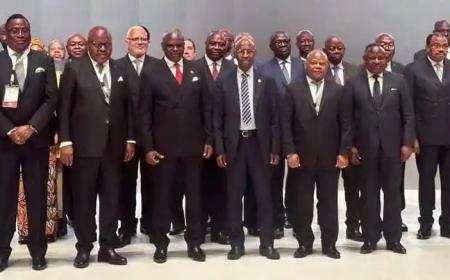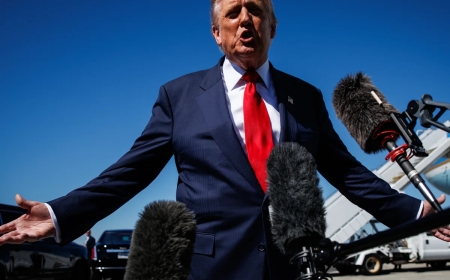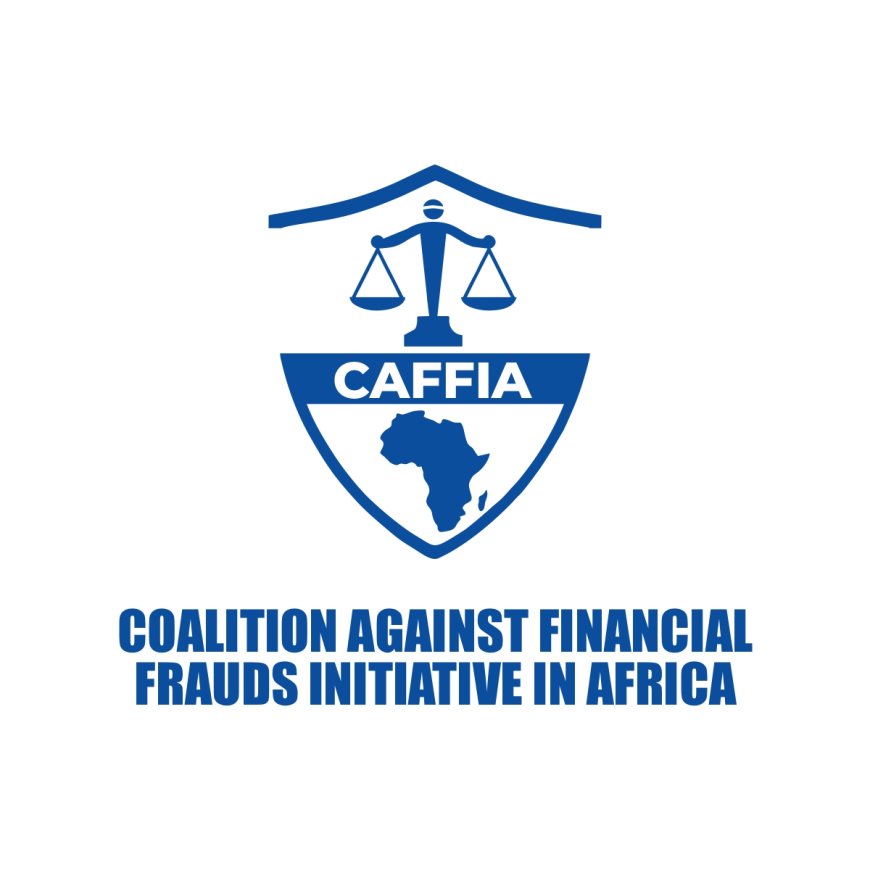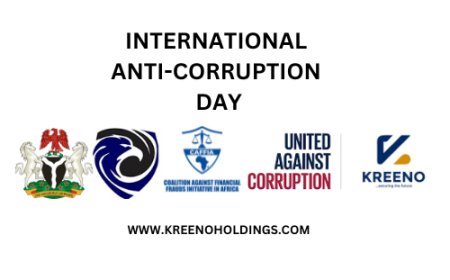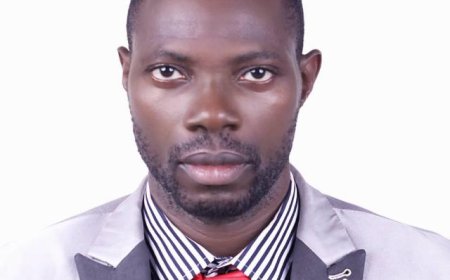Nigerian Man Sentenced to 11 Years in Prison for Money Laundering and Passport Fraud Conspiracies
A Nigerian man has been sentenced to 11 years in prison for his involvement in money laundering and passport fraud conspiracies. Learn about the case details and its implications in the ongoing fight against financial crimes.
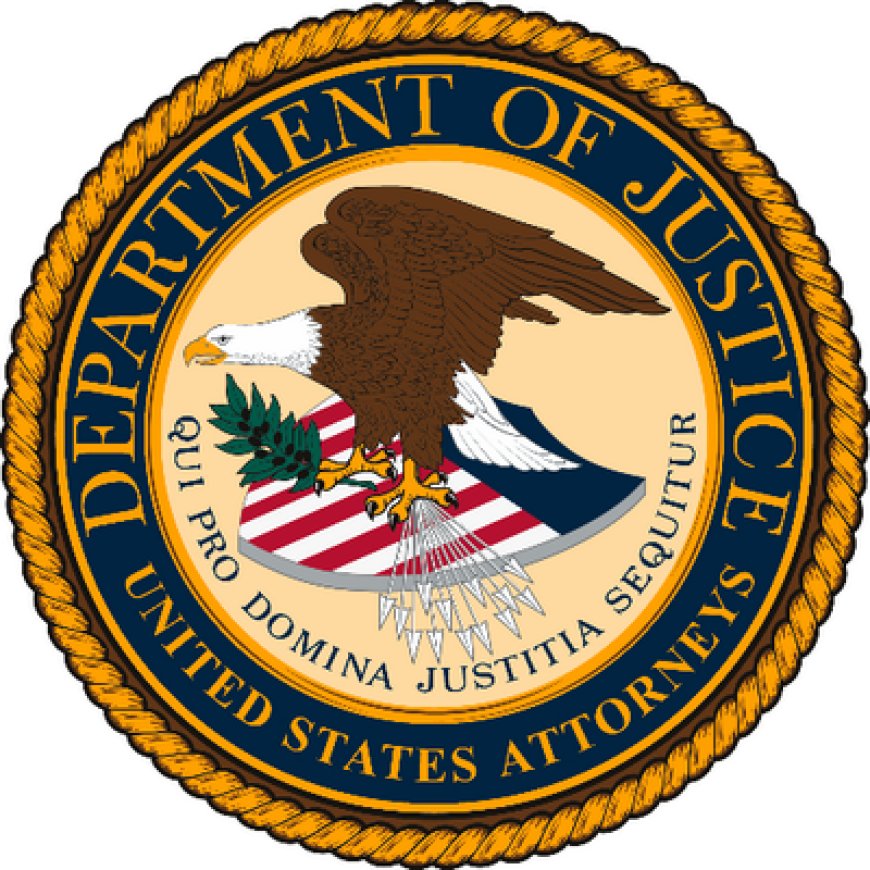
BOSTON – A Nigerian man, formerly of Massachusetts, was sentenced today for his role in separate schemes to launder criminal proceeds from fraud and obtaining a United States passport through false statements.
Chukwunonso Obiora, 37, was sentenced by United States District Judge Indira Talwani to 11 years in prison, to be followed by three years of supervised release. Obiora was also ordered to pay $3,326,014.14 in restitution and forfeiture. In June 2024, Obiora pleaded guilty to one count of passport fraud conspiracy and one count of money laundering conspiracy. Obiora was arrested on a criminal complaint in October 2023 in Atlanta, Ga. and was ordered held pending trial. He was indicted in January 2024.
Between at least as early as March 2021 and May 2023, Obiora and several co-conspirators agreed to receive and withdraw the proceeds of business email compromises (BECs) from bank accounts that they controlled, and to direct those funds to other co-conspirators, in exchange for a cut of the criminal proceeds. BECs are a type of fraud scheme that targets companies that make regular business payments by wire. Cybercriminals use email to impersonate trusted parties to the payments in order to trick the victim companies into sending money to bank accounts controlled by participants in the scheme.

The defendant’s money laundering conspiracy, of which he admitted to being a leader and organizer, involved obtaining individual victims’ means of identification and to create fake driver’s licenses, incorporate businesses and open bank accounts in the victims’ names; providing the bank accounts to co-conspirators involved in the BEC schemes as accounts to which victims could be tricked into sending wires; withdrawing money quickly from the bank accounts once the wire transfers arrived, before victim companies learned that they had been tricked into sending money; and depositing the proceeds into other accounts, and wiring BEC scheme proceeds to the defendant and others in Nigeria, China and elsewhere.
The defendant and his co-conspirators took steps to conceal the existence of the conspiracy, including by forging business invoices and writing false memos on checks to suggest that the BEC scheme proceeds deposited into Destination Accounts were legitimate business revenues; and by making false statements to banks regarding the nature of the BEC scheme proceeds that were deposited into Destination Accounts.
The defendant and his U.S.-based co-conspirators shared at least as much as 40 percent of the deposited BEC scheme proceeds as payment for their roles in the conspiracy. In just two-plus years, the defendant and his co-conspirators engaged in at least $6.5 million in financial transactions involving the proceeds of BEC schemes.
After immigration authorities removed the defendant from the United States in December 2021, he agreed with a close relative who is an American citizen to obtain a U.S. passport in the relative’s name, which the defendant could use to re-enter the United States illegally. The relative reported his passport lost or stolen and, in May 2023, applied for a new passport at a U.S. Post Office in Watertown, Mass. The sworn application had the relative’s name on it, but a picture of the defendant. The relative sent the issued passport to the defendant, who, in October 2023, used the passport to travel from Nigeria to Detroit, Mich., where the defendant presented himself as his relative at the U.S. border.
United States Attorney Joshua S. Levy and Michael J. Krol, Special Agent in Charge of Homeland Security Investigations New England made the announcement today. Valuable assistance was provided by the U.S. Department of State’s Diplomatic Security Service, Criminal Investigations Division. Assistant U.S. Attorney Seth B. Kosto, Chief of the Securities, Financial & Cyber Fraud Unit, prosecuted the case.
ADVERT
Probitas Report Moral Lessons from the Case of Chukwunonso Obiora:
1. Integrity-In-Business Culture is Non-Negotiable: The case highlights the destructive consequences of dishonesty and fraud. Upholding integrity-in-buiness mindset in all aspects of daily life and business ensures a reputation that cannot be tarnished and a life free from legal consequences. (Proverbs 10:9 - "People with integrity walk safely, but those who follow crooked paths will be exposed." and this is what KREENO DEBT RECOVERY AND PRIVATE INVESTIGATION AGENCY of KREENO HOLDINGS stands for working closely in partnership with law `Enforcement Agencies to reduce financial fraud activities across Governemntal and Non Governmental Organizations in Nigeria)
2. The Dangers of Greed: The pursuit of instant wealth or immediate meeting of financial needs through fraudulent means often leads to severe repercussions in the long run. True success comes from hard work, diligence, and ethical practices in our human interactions especially when doing business with ourselves. (Proverbs 13:11 - "Wealth from get-rich-quick schemes quickly disappears; wealth from hard work grows over time.") This is where we expect religious organizations need to start teaching intentionally whihch is lacking and perhaps the teachers are the ones not living by the standards orf liviing by integrity-in-business themselves.
3. Accountability Matters: This case demonstrates the importance of being accountable for one’s actions. Those who exploit others for personal gain not only harm their victims but also face the legal and moral consequences of their deeds. Anyone that denies another their means of livelihood or refuse to meet contractual business agreement is purely a wicked soul no matter. the coloration of the excuse. Whatever put on black and white must be respected and honored by all who are involved otherwise Nigeria will continue to find herself in retrogation.
4. Respect for Others' Hard Work: Fraudulent schemes, such as business email compromises, do not merely involve financial theft; they dismantle the hard-earned livelihoods of individuals and businesses, causing profound emotional and economic distress. Respect for the labor and achievements of others is a cornerstone of a just and equitable society. This principle underscores the need for fairness, where everyone is recognized for their work and protected from exploitation or manipulation. Regrettably, exploitation often arises from those closest to us—whether within personal, professional, or even religious circles—who may employ emotional blackmail or deceit to take advantage of our trust. Such actions, while not always overtly labeled as theft, violate the moral commandment in *Exodus 20:15* ("You must not steal"). Denying someone their rightful earnings, withholding funds borrowed in trust, or defrauding others of their resources is as grievous as any form of stealing.
Stealing is not limited to tangible property; it extends to acts that deprive others of opportunities, profits, or the financial rewards of their work. These actions betray trust, disrupt relationships, and erode the moral fabric of communities. True respect for others means valuing their contributions, honoring agreements, and ensuring that our dealings are characterized by fairness and integrity. By rejecting dishonest practices and striving for ethical conduct in all spheres of life, we build a society where trust flourishes, justice prevails, and each person is empowered to succeed without fear of exploitation or deceit. Let us commit to fostering a culture of respect and responsibility, upholding the dignity of every individual’s labor, and promoting honesty as a guiding principle for personal and collective growth.
5. Cybercrime Awareness: Businesses and individuals must be vigilant against cybercrime and fraudulent schemes. Education on cybersecurity practices is critical to prevent falling victim to such activities which would assist in creating more awareness to get the public be on alert.
6. Justice Will Prevail: Whilst some may evade justice temporarily, fraudulent actions eventually come to light in the lober time. This case demonstrates the long arm of justice and the importance of living by integrity-in-buisness. (Ecclesiastes 12:14 - "God will judge us for everything we do, including every secret thing, whether good or bad.")
7. Responsibility to Use Talents Positively: Chukwunonso Obiora demonstrated leadership and organizational skills that could have been deployed to build legitimate enterprises with capacity to create more jobs for the unemployed Nigerians in the country. Misusing one’s talents leads to ruin, whilst using them for good brings blessings. (Matthew 25:14-30 - Parable of the Talents.)
8. Community Impact: The harm inflicted by fraudulent schemes transcends mere financial losses; it strikes at the very heart of trust within communities and institutions. When trust erodes, the fabric of society begins to unravel, weakening the bonds that enable collaboration, growth, and collective progress. Fraudulent practices breed skepticism, stifle innovation, and perpetuate a cycle of dishonesty that hinders development on both personal and national levels. Building a trustworthy society starts with individual responsibility. Every person must commit to upholding principles of honesty, transparency, and fairness in all interactions. For Nigeria to rise from the ashes of its current struggles and realize its full potential, a collective resolve is required. "Citizens must pledge themselves to the unwavering principle of Integrity in Business, not as a mere ideal but as a cultural cornerstone worth defending—even at great personal cost." .. Dr Ohio O. Ojeagbase
"Integrity-In-Business is not merely just a moral obligation; it is a catalyst for transformation. A nation where businesses operate with integrity fosters economic growth, attracts investment, and strengthens public institutions. By adopting this culture and instilling it in the next generation of young people, we can create a legacy that ensures Nigeria’s resurgence as a beacon of ethical excellence. It is time for every citizen to embrace this value as non-negotiable, recognizing that the future of the nation depends on the integrity of its people today."... Dr Ohio O. Ojeagbase
9. Global Consequences of Fraud: The international scope of financial fraud highlights the urgent need for robust global collaboration to effectively combat this pervasive menace. Financial crimes often transcend borders, exploiting gaps in regulatory systems and affecting individuals, businesses, and economies worldwide. This interconnected nature of fraud underscores a critical truth: our actions, or inactions, have far-reaching consequences that ripple across communities and nations.
In response to this growing challenge, Probitas Report, KREENO Holdings, the Police Special Fraud Unit, Finance Houses, the NSCDC, and other key stakeholders are joining forces to champion a groundbreaking initiative—the Coalition Against Financial Fraud Initiative in Africa (CAFFIA). This coalition represents a unified front committed to fostering accountability, promoting ethical financial practices, and creating a secure economic environment across the African continent. CAFFIA aims to bridge the gap between public and private entities, leveraging shared intelligence, technological innovation, and coordinated efforts to detect, prevent, and prosecute financial crimes. Through collaborative frameworks and strategic partnerships, this initiative seeks to restore trust in financial systems, protect assets, and ensure that justice prevails. Together, we can create a future where integrity-in-business defines Africa’s financial landscape, and fraud becomes a relic of the past.'
10. Redemption and a Fresh Start: No matter how grave one’s mistakes or transgressions, there is always an opportunity for repentance and transformation. Life offers us the chance to turn away from wrongdoing and embrace a new path rooted in integrity and accountability. This is both a moral and spiritual imperative that reflects the heart of divine forgiveness and restoration. As Isaiah 1:18 (NLT) beautifully states: *“Come now, let us settle this,” says the Lord. “Though your sins are like scarlet, I will make them as white as snow.”* God’s invitation to reconciliation is a call to leave behind actions that harm others and ourselves, and to walk in the light of righteousness and truth.
For those who have engaged in financial misdeeds, including defrauding others of their hard-earned business funds, the time for change is now. Restitution—returning what has been wrongfully taken—is not just a legal responsibility but also a spiritual act of obedience and honor. Failing to address such wrongs could escalate into serious consequences, including criminal prosecution and imprisonment. However, choosing to take accountability by returning what was taken and seeking forgiveness can pave the way for personal and societal healing. It restores trust, upholds justice, and reflects the transformative power of doing what is right. The decision to correct past mistakes is not a sign of weakness but of strength, courage, and a commitment to living a life of integrity moving forward.
About The Author:
Dr. Ohio O. Ojeagbase, FICA, FIDR, Publisher of Probitas Report and Chief Private Investigator of KREENO DEBT RECOVERY AND PRIVATE INVESTIGATION AGENCY of KREENO HOLDINGS, extends a heartfelt call to action for all readers: reflect deeply on the principles of integrity in business, diligence, and the pursuit of positive contributions to society. He emphasizes that humanity thrives when individuals and institutions are committed to honesty, fairness, and the betterment of others. By cultivating a mindset rooted in integrity, we can liberate humanity from the chains of greed, deceit, and bitterness, fostering a world that is better, not bitter. Dr. Ojeagbase underscores that fraud and the absence of an integrity-in-business culture are destructive pathways that not only ruin lives but also erode trust within communities and nations. In contrast, a life built on honest principles, ethical practices, and accountability leads to lasting success, fulfillment, and the restoration of societal values.
With years of experience consulting for the Police Special Fraud Unit, Dr. Ojeagbase has provided strategic insights and impactful training programs that have played a critical role in solving complex financial fraud cases especially in teh petroleum industry in Nigeria where he helped recovered several hundreds of millions diverted by wicked debtors. His efforts serve as a beacon, inspiring individuals and organizations to adopt a culture of ethical excellence and integrity-in-business mentality in all bsuiness transactions. The choice to walk in integrity-in-business is not just a personal victory but a foundational step toward building a more just and prosperous society esepcially in this renewed agenda of President Bola Ahmed Tinubu Administration.
You can send direct Email to the Author/Publisher on drkreeno@gmail.com or WhatsApp / Call Agent Ekwy on 0708 832 5000 for all your Debt Collection Services.
Contact CAFFIA and KREENO on +234 708 832 5000 or caffia@kreenoholdings.com
Kindly share this story:
Contact: report@probitasreport.com
Stay informed and ahead of the curve! Follow The ProbitasReport Online News Report on WhatsApp for real-time updates, breaking news, and exclusive content especially when it comes to integrity in business and financial fraud reporting. Don't miss any headline – and follow ProbitasReport on social media platforms @probitasreport
[©2024 ProbitasReport - All Rights Reserved. Reproduction or redistribution requires explicit permission.]
What's Your Reaction?

































